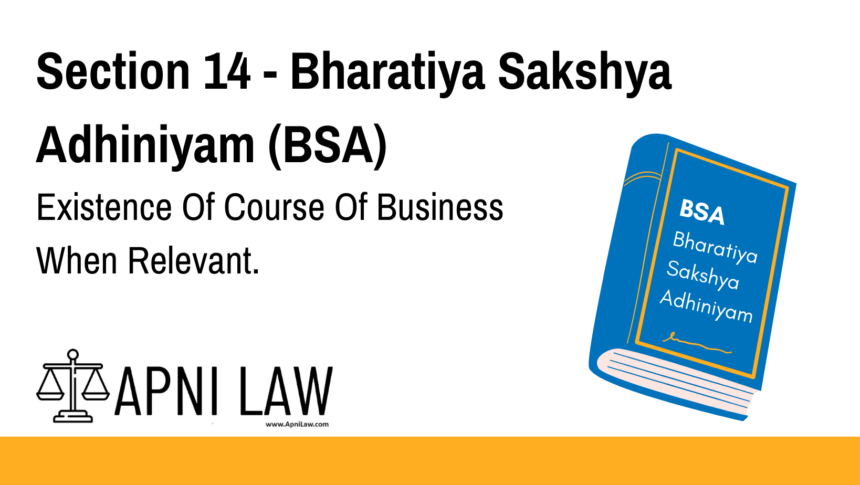Code
When there is a question whether a particular act was done, the existence of any
course of business, according to which it naturally would have been done, is a relevant fact.
Illustrations.
(a) The question is, whether a particular letter was dispatched. The facts that it was
the ordinary course of business for all letters put in a certain place to be carried to the post,
and that particular letter was put in that place are relevant.
(b) The question is, whether a particular letter reached A. The facts that it was posted
in due course, and was not returned through the Return Letter Office, are relevant.
Explanation
This section is about using standard business practices or routines to infer whether or not a specific act likely occurred—even when direct evidence may be missing.
When there’s uncertainty about whether a particular task was performed, the court can consider the usual or habitual method in which that task is done. If the act in question aligns with a well-established course of conduct or business practice, it can be inferred that it was probably done.
Illustrations (as per statute)
The question is whether a specific letter was dispatched.
Relevant: It was part of regular office practice to post all letters placed in a certain tray. The fact that the letter was placed in that tray suggests it was dispatched.
The question is whether a letter reached A.
Relevant: The letter was posted normally and never returned by the postal service. This supports the assumption that A received it.
Key Concepts
- A “course of business” means a routine, habitual, or standard practice followed in an organization or system.
- Courts rely on such habitual conduct as indirect evidence when direct proof is unavailable.
- Especially useful in cases involving large organizations (postal departments, banks, government offices, etc.)








